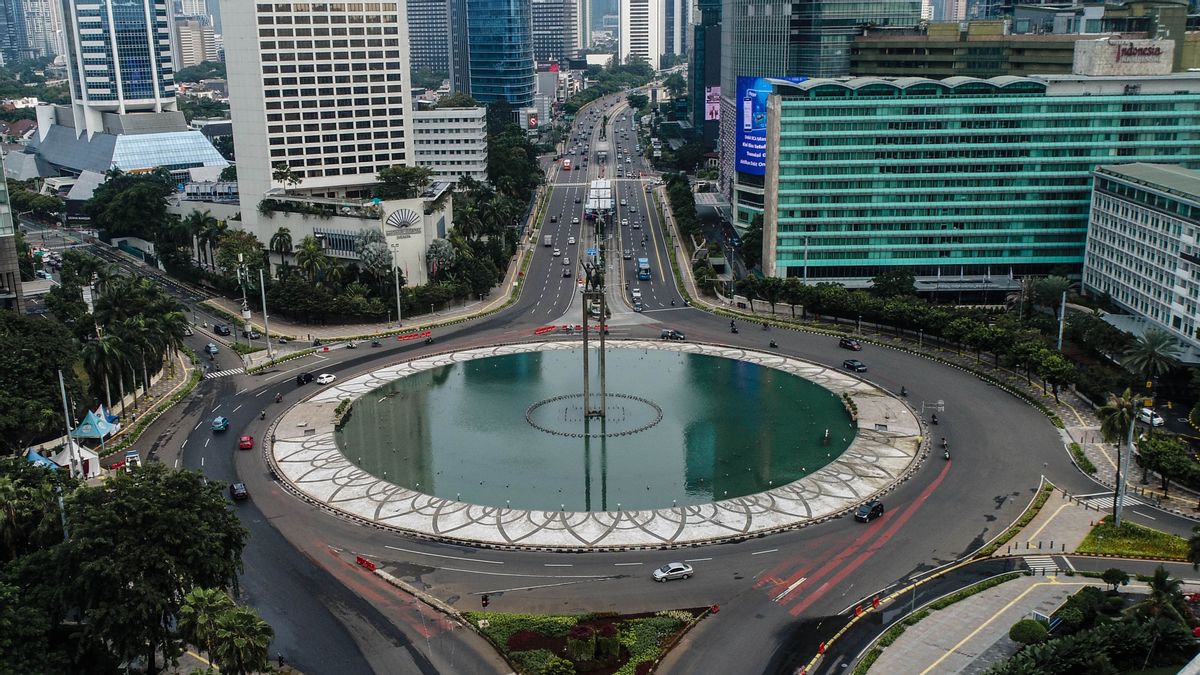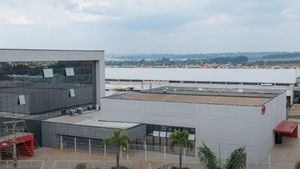JAKARTA - Indonesia's Center of Reform on Economics (CORE) predicts that Indonesia's economy in the first quarter of 2021 will still contract between 0.5-1 percent and a new acceleration will occur in the second quarter of 2021 with a positive growth of 4-5 percent.
"We predict full year with the current perspective of 3-4 percent. This is still below the government's target", said Executive Director of CORE Indonesia Mohammad Faisal at the "Breaking Inertia for Economic Recovery" in Jakarta, quoted from Antara, Tuesday, April 27.
Faisal said the 3-4 percent growth projection, which is below the government's prediction of 4.3-5.3 percent, is because household consumption recovery has not accelerated properly.
He explained that in fact, the movement of the community had increased, even closer to normal conditions, namely before the pandemic, both trade places, retail, restaurants, cafes, and others, which had risen quite significantly.
On the other hand, if you look more deeply, it turns out that there are significant differences in community activities and long-distance vehicles, such as using trains and airplanes, which are still a third of the initial conditions in 2020.
"The push to leave the house is still at close range. It turns out that this significant increase in mobility has not boosted household consumption much", he said.
He said that people's mobility, which seems to have started to recover over the past four months, has not been able to boost consumption optimally and can be seen through several indicators.
He said that the real sales index up to the first quarter of 2021 still has a deep contraction, namely, 17 percent (YoY), and the movement of inflation, especially core inflation, has not yet lifted until the beginning of the year.
"In fact, in March for the first time since early 2020, it entered the negative zone or deflation of minus 0.03 percent. So, there is no indication of a strong increase in consumption", he said.
He continued, the same thing can also be seen from the consumption of housing and property, which in fact, compared to before the pandemic, was still relatively low in growth, especially KPA and KPR (House, Apartment Ownership Financing), and real estate.
Then, the increase in motor vehicle sales due to the relaxation of PPnBM (Sales tax on luxury goods) which is estimated to grow by 11 percent in April and May is also not sustainable because it will decrease in line with the decrease in the discount.
"This could increase sales this year, but when the discount period ends, we expect it will return to its original state before the stimulus was given", he explained.
The English, Chinese, Japanese, Arabic, and French versions are automatically generated by the AI. So there may still be inaccuracies in translating, please always see Indonesian as our main language. (system supported by DigitalSiber.id)











